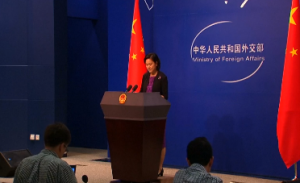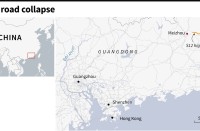
(Reuters) — China on Wednesday (June 25) accused the Philippines of creating tension in the region and urged Manila to show “sincerity” in upholding stability after President Benigno Aquino welcomed Japan’s more assertive military policy.
Japanese Prime Minister Shinzo Abe made it clear on Tuesday (June 24) he wanted an early agreement with his ruling party’s dovish junior partner to ease constitutional curbs that have keptJapan’s military from fighting abroad since World War Two.
Aquino said after meeting Abe on Tuesday that “nations of goodwill can only benefit if theJapanese government is empowered to assist others”.
China’s Foreign Ministry said Aquino’s statement had complicated an already difficult situation.
“We think that the relevant country should earnestly show its sincerity, meet China halfway, rather than artificially creating tensions and rivalry and adding new, complicating factors to the situation in the region. We hope that the interaction between the relevant countries can truly inject positive energy into regional peace and stability, and play a positive and constructive role, rather than the reverse,” the ministry’s spokeswoman Hua Chunying told a daily news briefing inBeijing.
Japan and the Philippines are locked in disputes with China over territorial claims, respectively, in the East China Sea and South China Sea.
Sino-Japanese ties have also long been plagued by what Beijing sees as Japan’s failure to atone for its often brutal occupation of parts of China in the 1930s and 1940s.
Hua added that due to historical reasons, China has always maintained a high degree of concern about Japan’s military movements.
Beijing claims about 90 percent of the South China Sea. Parts of the potentially energy-rich waters are also subject to claims by the Philippines, Vietnam, Malaysia, Brunei and Taiwan.
Tensions have risen sharply in the region in recent months, especially between China and bothVietnam and the Philippines.
China’s positioning of an oil rig in waters claimed by both Beijing and Hanoi last month has led to rammings at sea between ships from both countries and anti-Chinese violence in Vietnam.







